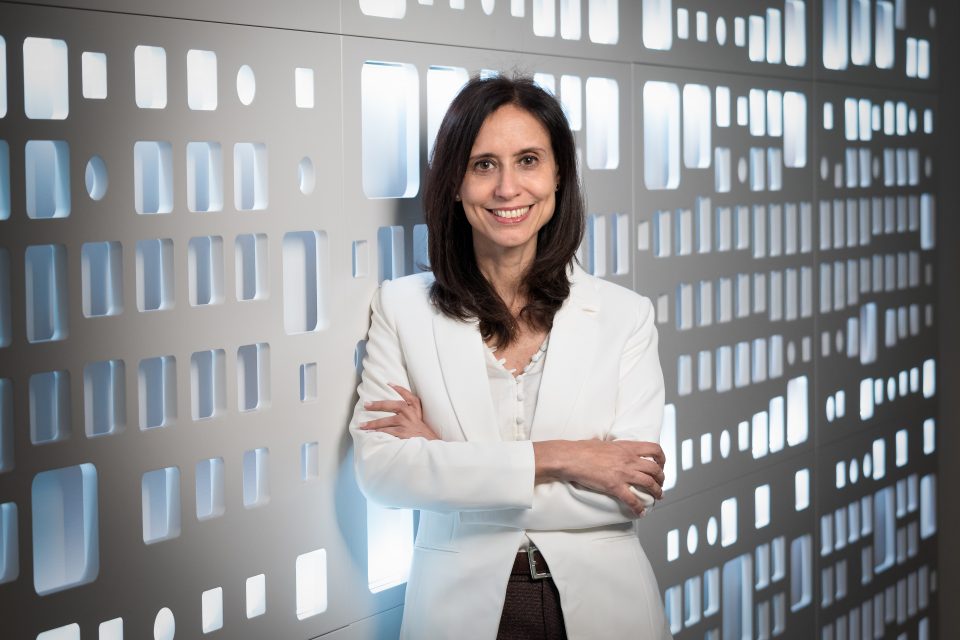In this interview for Global Industry magazine, Doris Gomes, Director of Cloud Adoption and Innovation at Microsoft Spain, talks about the challenges of Artificial Intelligence and its impact on the industry.
After 20 years at Microsoft, for the last two years you have been in charge of the area that drives customer modernisation and transformation with a multi-cloud approach, what is the balance?
The balance is very positive. We are seeing a shift from digital optimism to digital perseverance. Digital technology is a deflationary force in an inflationary economy, and it is its alignment with business strategy that will enable organisations to be more resilient and able to move forward faster in the face of new challenges.. Innovation-leading organisations across all industries are accelerating their migration to the cloud, aware of its advantages. Data from our latest study with IDC forecasts that the percentage of infrastructure services that will have been migrated to the cloud will increase from 51% in 2022 to 64% in 2025, with an estimated market size in Spain of more than 1.9 billion euros. In this revolution, cloud, data and the growing role of AI mean significant advances in business process automation and decision making. The industrial sector, and the economy as a whole, is becoming aware of the immense potential of AI. The manufacturing sector is one of the industries that is leading the way in capitalising on the full potential of AI-driven innovation. This technology will add nearly $3.7 billion to the sector by 2035, according to Accenture.
“Leading innovation organisations across all industries are accelerating their migration to the cloud, aware of its advantages”.
In the Fórum Tecnolóxicas of this edition of Mindtech you will talk about Artificial Intelligence, what new developments will the company present in the short and medium term?
We are optimistic about the future of AI. Its advances will help us solve major challenges and simplify everyday tasks.
At Microsoft, we are developing ever larger and more sophisticated AI systems that can process information more effectively thanks to the vast amount of training data available and the computational power enabled by the cloud. We have built one of the world’s most powerful AI supercomputers with Azure and our infrastructure trains great cutting-edge AI models, such as Turing for natural language understanding, ZCode and Zcode for translation and summarisation in hundreds of languages, or Florence for visual recognition. We are making these AI capabilities accessible and cost-effective for other users from Bing to Microsoft 365, Dynamics 365, Power Platform, GitHub or LinkedIn. And we are integrating AI models such as Codex, DALL∙E 2 and Z-Code into our consumer services and applications to enhance their functionality. With OpenAI, we have further strengthened our strategic partnership, dating back to 2019, including a multi-million dollar investment over the next few years and are integrating OpenAI’s models into our own solutions and products to bring natural language innovations to customers at scale.
Should we be afraid of generative AI?
This new generation of AI not only helps us to process information, but to reason about it. It is like having a co-pilot, who helps us in our tasks, from the most mundane to the most complex, in our work or in major challenges, such as scientific research in areas such as sustainability or health.
Our aim is therefore to democratise AI so that anyone can benefit. 62% of all people surveyed in the latest Microsoft Workplace Trends Index say they spend too much time searching for information, attending calls and meetings and coordinating with others, so they have less time to invest in creative thinking and innovation. AI promises to alleviate these tasks and help us in the creative process itself. Until now, this technology has almost always operated on autopilot. Next-generation co-pilots will now work alongside people, but the human always takes the lead in this process, using the machine as an aid to their creativity.
Bill Gates predicts the disappearance of jobs and even a new way of behaving on the Internet. Is it the new Industrial Revolution?
As technological change accelerates, work to govern AI responsibly and respectfully must keep pace. The evolution of AI systems may change the nature of some jobs and create new ones, it is difficult to predict with certainty how it will affect the labour market, but we are committed to developing this technology in a responsible way, understanding its impact on society.
We need to change the internal culture to ensure that workers are prepared for the future and that sufficient talent is available for critical jobs.
The presence of women in sectors such as technology or metalworking is still a minority. What do you think is the reason for this?
España es el tercer país de la UE con mayor número de mujeres científicas y el quinto con mayor paridad entre hombres y mujeres en la ciencia, pero aún queda mucho camino por recorrer, ya que la presencia femenina en las carreras técnicas sigue siendo sólo del 30%.
Una de las principales barreras es el entorno masculinizado y los estereotipos sobre los profesionales de la tecnología, que los hacen poco atractivos para las mujeres.
It is something that requires the collaboration of governments, businesses, civil society, universities, schools and families. It is our responsibility to inspire and show girls that a career in STEM can be creative and exciting and that they too can be the stars of this digital age. We have a problem of lack of digital talent, which is even greater if we are talking about women. It is still necessary to give visibility to women scientists, engineers, AI specialists, data scientists, etc., and to work in the classrooms of schools and universities and at home to pre-establish benchmarks in this field.
